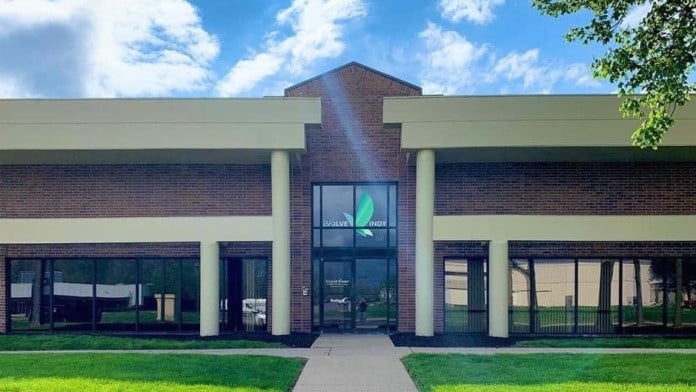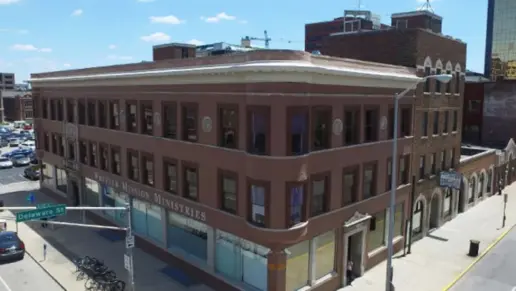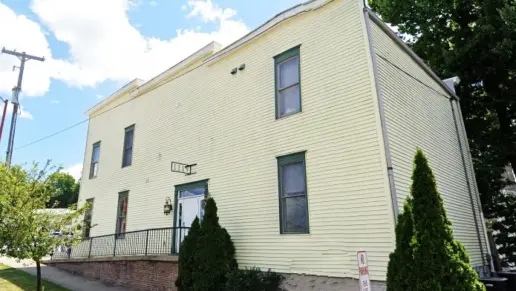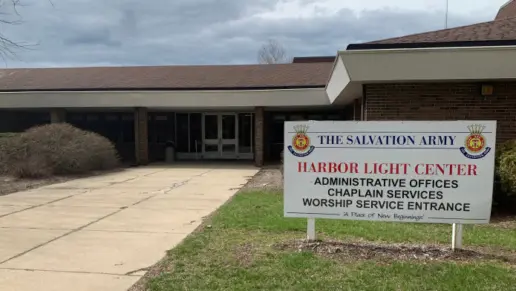About Evolve Indy – Indiana Drug & Alcohol Rehab
Evolve Indy is an addiction treatment center in Indianapolis, Indiana. Their innovative approach to drug treatment includes a calming interior design that promotes flow, movement, and social interaction. They treat both substance use along with dual diagnoses given for co-occurring disorders. The center encourages outdoor activities with adventure-based Sundays. They also include an LA Fitness membership.
The facility is accredited by The Joint Commission, and they accept insurance from most major carriers. There are several programs from which to choose, including a partial hospitalization program (PHP), an intensive outpatient program (IOP), and a general outpatient (OP) program.
The PHP is a day/night treatment and you’ll live in community housing. You’ll have individualized care and staff supervision. All staff have credentials, and many have had addiction issues themselves and are now living a sober lifestyle. While in the program, you’ll attend treatment Monday through Saturday. There are 30 hours of group therapy weekly and you’ll also have one hour of individual therapy per week.
The next step after the PHP is the IOP. The IOP is an intensive program but offers more freedom to continue with your daily life. Some people can go straight into the IOP, though for many people the PHP is a better first step.
The next step down is a regular outpatient program. This program is good if you have mild substance use issues or you’ve already completed the PHP and IOP. You’ll have therapy 5-7 days per week. You’ll be able to attend treatment while still holding down a job and dealing with family responsibilities.
All programs include group and individual therapy as well as relapse prevention education. You’ll learn about and start the 12 Step model of recovery and attend family therapy and workshops. They also teach life skills and socialization. You’ll receive treatment for any co-occurring disorder such as anxiety, depression, schizophrenia, or bipolar disorder.
One former client said that the center goes above and beyond in making sure you have the tools you need to continue in a life of recovery. Several others mentioned that the staff is personable, helpful, and friendly.
Latest Reviews
Rehab Score
Gallery






Location
Accepted Insurance


Other Forms of Payment
Private insurance refers to any kind of healthcare coverage that isn't from the state or federal government. This includes individual and family plans offered by an employer or purchased from the Insurance Marketplace. Every plan will have different requirements and out of pocket costs so be sure to get the full details before you start treatment.
Self-pay involves paying for treatment out of your own pocket. You can use savings or credit, get a personal loan, or receive help from family and friends to fund your treatment. If you don't have insurance or your insurance plan doesn't cover a specific program, self-pay can help ensure you still get the care you need.
Military members, veterans, and eligible dependents have access to specific insurance programs that help them get the care they need. TRICARE and VA insurance can help you access low cost or no cost addiction and mental health treatment. Programs that accept military insurance often have targeted treatment focused on the unique challenges military members, veterans, and their families face.
Addiction Treatments
Levels of Care
Programs




Clinical Services
When you participate in cognitive behavioral therapy in Indiana, you'll learn to recognize distorted thinking that has led to substance use. Your therapist will help you establish new patterns of thinking and healthy ways to cope with challenges that don't involve substance use.
Individual dialectical behavior therapy (DBT) takes place in weekly, 60 minute sessions. You'll have homework to do, such as keeping a diary to track your emotions and actions. You'll also attend group sessions, which are intended to be skills practicing sessions. DBT in Indiana typically lasts six months to a year.
Group therapy is any therapeutic work that happens in a group (not one-on-one). There are a number of different group therapy modalities, including support groups, experiential therapy, psycho-education, and more. Group therapy involves treatment as well as processing interaction between group members.
In individual therapy, a patient meets one-on-one with a trained psychologist or counselor. Therapy is a pivotal part of effective substance abuse treatment, as it often covers root causes of addiction, including challenges faced by the patient in their social, family, and work/school life.
Motivational interviewing aims to stimulate the client's personal motivation and commitment to change. Rather than receive advice and warnings from the therapist, the client is given the opportunity to share their concerns and reach their own conclusions.
During trauma therapy in Indiana, your therapist helps you process traumatic experiences and learn how they affect your emotional, mental, and physical responses. You learn effective coping strategies that help to reduce the symptoms and improve your mental health and well being.
In couples therapy, you and your partner work with a psychologist to identify challenges in the relationship and what changes need to be made. You'll work on listening, communicating, and navigating those changes in healthy ways.
Research clearly demonstrates that recovery is far more successful and sustainable when loved ones like family members participate in rehab and substance abuse treatment. Genetic factors may be at play when it comes to drug and alcohol addiction, as well as mental health issues. Family dynamics often play a critical role in addiction triggers, and if properly educated, family members can be a strong source of support when it comes to rehabilitation.
Feelings of withdrawal and intense cigarette cravings make quitting smoking difficult. Nicotine replacement therapy can double your chances of long term success. This therapy provides a small amount of nicotine, so you can slowly wean yourself off this addictive substance.
Amenities
-
Residential Setting
Accreditations

LegitScript has reviewed Evolve Indy – Indiana Drug & Alcohol Rehab as part of their certification program, and has determined that it meets the LegitScript standards for legality, safety and transparency.
LegitScript verified in

The Joint Commission, formerly known as JCAHO, is a nonprofit organization that accredits rehab organizations and programs. Founded in 1951, the Joint Commision's mission is to improve the quality of patient care and demonstrating the quality of patient care.
Joint Commission Accreditation: Yes
Contact Information
8770 Guion Rd
Suite B
Indianapolis, IN 46268















